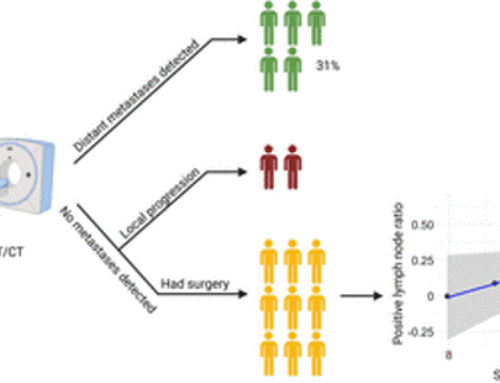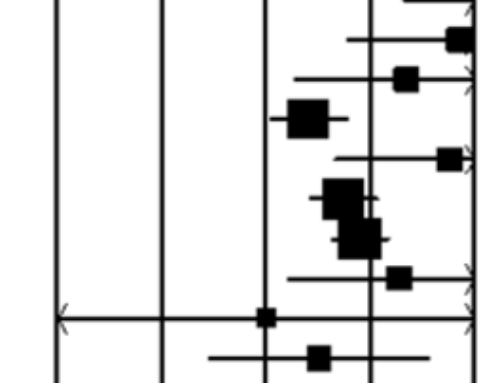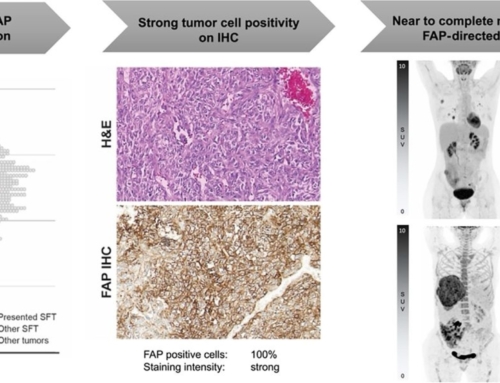Iris K Lee, Estela Noguera-Ortega, Zebin Xiao, Leslie Todd, John Scholler, Decheng Song, Maria Liousia, Katheryn Lohith, Kexiang Xu, Kimberly J Edwards, Michael D Farwell, Carl H June, Steven M Albelda, Ellen Pure, Mark A Sellmyer
Abstract
Purpose: Despite the success of chimeric antigen receptor (CAR) T cell therapy against hematological malignancies, successful targeting of solid tumors with CAR T cells has been limited by a lack of durable responses and reports of toxicities. Our understanding of the limited therapeutic efficacy in solid tumors could be improved with quantitative tools that allow characterization of CAR T-targeted antigens in tumors and accurate monitoring of response.
Design: We used a radiolabeled fibroblast activation protein (FAP) inhibitor (FAPI) [18F]AlF-FAPI-74 probe to complement ongoing efforts to develop and optimize FAP CAR T cells. The selectivity of the radiotracer for FAP was characterized in vitro and its ability to monitor changes in FAP expression was evaluated using rodent models of lung cancer.
Results: [18F]AlF-FAPI-74 showed selective retention in FAP+ cells in vitro, with effective blocking of the uptake in presence of unlabeled FAPI. In vivo, [18F]AlF-FAPI-74 was able to detect FAP expression on both tumor cells as well as FAP+ stromal cells in the tumor microenvironment with a high target-to-background ratio. We further demonstrated the utility of the tracer to monitor changes in FAP expression following FAP CAR T cell therapy, and the PET imaging findings showed a robust correlation with ex vivo analyses.
Conclusion: This non-invasive imaging approach to interrogate the tumor microenvironment represents an innovative pairing of a diagnostic PET probe with solid tumor CAR T cell therapy and has the potential to serve as a predictive and pharmacodynamic response biomarker for FAP as well as other stromal cell-targeted therapies.

![Monitoring Therapeutic Response to Anti-Fibroblast Activation Protein (FAP) CAR T Cells using [18F]AlF-FAPI-74](https://sofie.com/wp-content/uploads/2022/09/image-3.png)
![FAP Expression in Renal Tumors Assessed by [68Ga]Ga-FAPI-46 PET Imaging and FAP Immunohistochemistry: A Case Series of Six Patients](https://sofie.com/wp-content/uploads/2025/12/info.ibamolecular-scaled-500x383.jpg)


![[68Ga]Ga-API-46 PET accuracy for cancer imaging with histopathology validation: a single-centre, single-arm, interventional, phase 2 trial](https://sofie.com/wp-content/uploads/2025/09/image-500x383.png)
